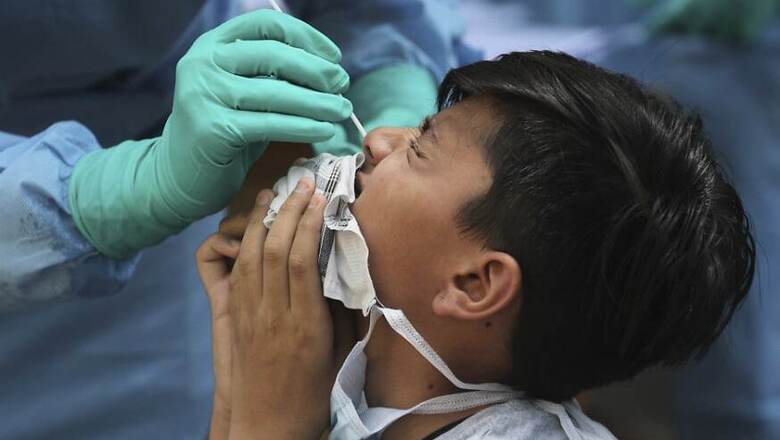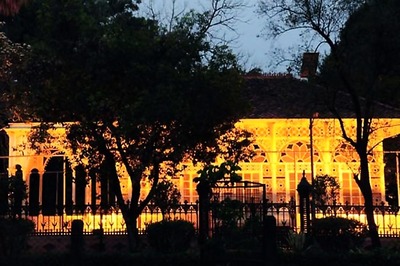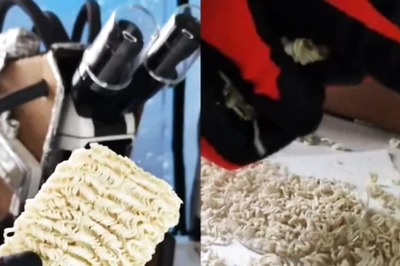
views
Chennai: Tamil Nadu had its own share of peculiarities in the way it dealt with the COVID-19 pandemic. Largely insulated for long when other states were grappling with the spread, Tamil Nadu went under in a short span, crossing the 1,000-cases mark last week.
It was also peculiar in the way the government seemed to handle the messaging of it — particularly in tricky areas such as the question of allowing opposition parties and NGOs to continue relief work. The Edappadi Palaniswami-led government had first barred the non-governmental groups from getting involved in relief work. Later, after a backlash, a new press release allowed them to join hands with the government. Not exactly a volte-face, but not really a sound communication strategy either.
The biggest strategic shift in Tamil Nadu has been the change in its stance from “correct, judicious testing” to an aggressive sweep. Over the last week, at least, the state has been raising the number of samples collected in thousands each day. This is a significant transition from a position that only symptomatic cases need to be tested. In fact, in one of the daily press briefings, Heath Secretary Beela Rajesh asserted that people testing negative may show the opposite result after a few days, rendering decisions based on rapid testing ineffective.
Now, the state is going through the populace with a comb of testing kits.
"We have to test more now. We are widening the net of testing. Earlier, it was people with imported cases (people who travelled abroad. Next were people who travelled to other states (New Delhi returnees). Now, we have started local testing as well,” said a senior official.
According to the government official, testing samples in Chennai have been anywhere between 1,200 and 1,300 per day in the recent days. Chennai has recorded the most number of positive cases so far.
"We are following a protocol for testing till the community spread is well established. Our testing strategy is to test all the family contacts and extended contacts of COVID-19 patients. The third category is symptomatic people in the containment areas, which means that in the area where a case is recorded, we test people who have one of the symptoms. Our other category is to randomly select people with ILI (Influenza-like illness) and SARI (serious acute respiratory infection), and test them to see if there is any spread," the senior officer added.
However, political analysts are of the opinion that Tamil Nadu downplayed the rate of infection whereas Kerala realised its seriousness and was proactive in containing the spread of the virus.
RK Radhakrishnan, Associate Editor at The Hindu Group's Frontline, said: "Kerala realised the seriousness of the epidemic and roped in people, including all opposition parties as part of its campaign to control the epidemic which has not happened in Tamil Nadu. In Kerala, it is a societal movement and it has touched every single person who is part of the society. It is very clear that Tamil Nadu wanted to downplay the rate of infections, while Kerala was much more transparent, upfront and open about even the minor problems happening in the district government hospitals. In Kerala, social distancing was not just a slogan. This was implemented for journalists and for the cabinet in Kerala, but that was never the case in Tamil Nadu."
According to heath secretary Beela Rajesh, the state has also recorded 31 victims under the age of 10, a cause for concern. Tamil Nadu has recorded 11 deaths so far; most of them above the age of 40. Its districts such as Coimbatore and Erode have turned into clear hotspots, with many areas steadily reporting new cases each day. Tamil Nadu was also one of the states where the Tablighi Jamaat returnees came back in droves. The state had earlier announced them separately but after concerns of communalisation, it declared their numbers as a “single source” event.
Even now, it’s a challenge to keep a lid on the spread that originated at the Nizamuddin conference in Delhi, particularly among the primary contacts of the returnees.
In many ways, Tamil Nadu appears to be reacting to the crisis. From the way it dealt with opposition parties or to the question of testing aggressively, the state appears to be eventually arriving at a stance proposed by health experts and opposition parties.

















Comments
0 comment